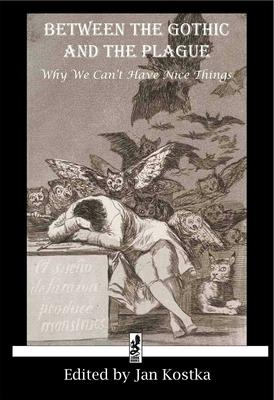This volume contains five stories - some short, some long. Each that builds upon the heritage of the other. It starts with The Castle of Ontarato (1764) by Horace Walpole which is considered the first, "Gothic Novel"; Vathek, An Arabian Tale (1782) by William Beckford, was influenced by Walpole and Arabian Nights; The Last Man (1826) by Mary Shelley carries on the theme of the previous works, but could be viewed as one of the first science fiction post-apocalyptic novels; The Masque of the Red Death (1842) by Edgar Allen Poe also focuses on apocalyptic forces and society's efforts (or lack thereof) to deal with it. Finally, The Scarlet Plague (1912) by Jack London describes a world-wide pandemic that humanity cannot control. Even the cover illustration, The Sleep of Reason Produces Monsters, by Goya is influenced by the Gothic art and forms a sort of double-entendre of monsters made in our mind and by doing nothing.

Between the Gothic and the Plague: Why we can't have nice things
This volume contains five stories - some short, some long. Each that builds upon the heritage of the other. It starts with The Castle of Ontarato (1764) by Horace Walpole which is considered the first, "Gothic Novel"; Vathek, An Arabian Tale (1782) by William Beckford, was influenced by Walpole and Arabian Nights; The Last Man (1826) by Mary Shelley carries on the theme of the previous works, but could be viewed as one of the first science fiction post-apocalyptic novels; The Masque of the Red Death (1842) by Edgar Allen Poe also focuses on apocalyptic forces and society's efforts (or lack thereof) to deal with it. Finally, The Scarlet Plague (1912) by Jack London describes a world-wide pandemic that humanity cannot control. Even the cover illustration, The Sleep of Reason Produces Monsters, by Goya is influenced by the Gothic art and forms a sort of double-entendre of monsters made in our mind and by doing nothing.